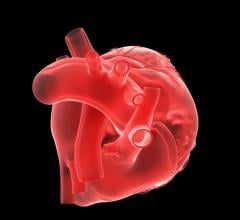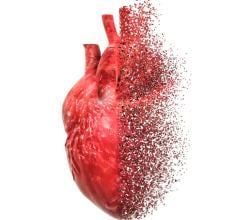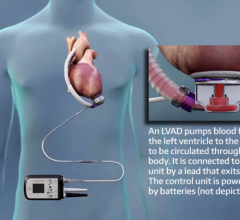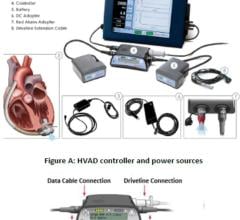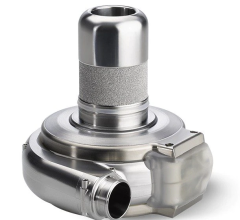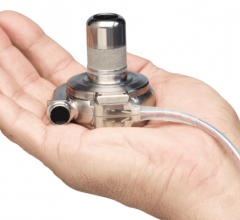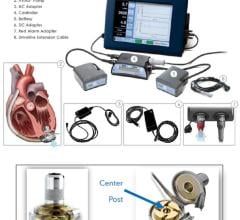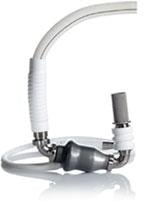
January 21, 2010 – The FDA this week cleared the HeartMate II, a continuous-flow, left ventricular assist device (VAD), as a support for severe heart failure patients who are not acceptable candidates for heart transplantation.
The HeartMate II is already FDA-approved for use in patients awaiting further, more complex treatment, such as transplants.
Heart assist devices are surgically implanted mechanical pumps that help the heart's ventricle pump blood to the rest of the body. HeartMate II consists of a small, lightweight blood pump implanted in a patient's chest just below the heart. An electrical cable that powers the blood pump passes through the patient's skin to an external controller worn around the patient's waist.
A physician designates the pump's speed based upon clinical need. The device is designed to sound an alarm upon malfunction or other potentially drastic changes that could impact the pump's operation.
"The approval of HeartMate II provides an option for heart failure patients who cannot receive a transplant," said Jeffrey Shuren, M.D., director of the FDA's Center for Devices and Radiological Health. "Its smaller size and mobility should allow more patients, including women and men of smaller stature, access to treatment."
In a randomized clinical study of 200 participants at 38 centers, 46 percent of 134 participants with the HeartMate II were still living after two years with no disabling stroke or need for a reoperation for device replacement or repair compared with 11 percent of 66 participants in the control group. In addition, data collected in a separate registry of smaller stature women and men indicated that the device worked well in this specific population.
As a condition of the FDA's approval, the Thoratec Corp. will conduct a post-approval study to further evaluate the device's performance. The data will be recorded in the Interagency Registry of Mechanical Assisted Circulatory Support (INTERMACS) and made available when the post-approval study is concluded. The INTERMACS is a clinical outcomes registry managed by the FDA, the National Heart, Lung and Blood Institute at the National Institutes of Health, the Centers for Medicare and Medicaid Services and participating hospitals and companies.
For more information: www.thoratec.com


 June 19, 2024
June 19, 2024 
